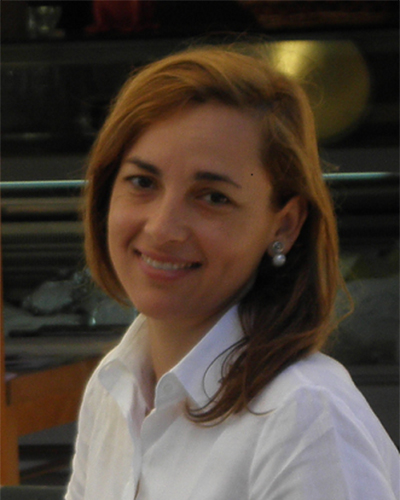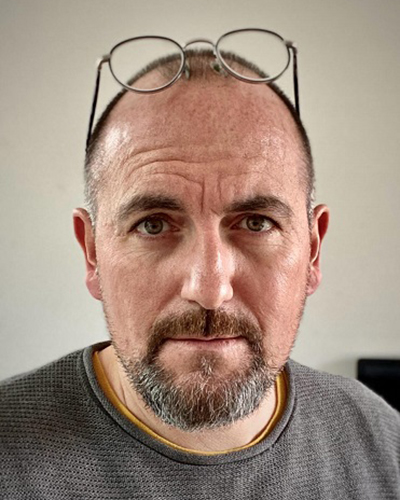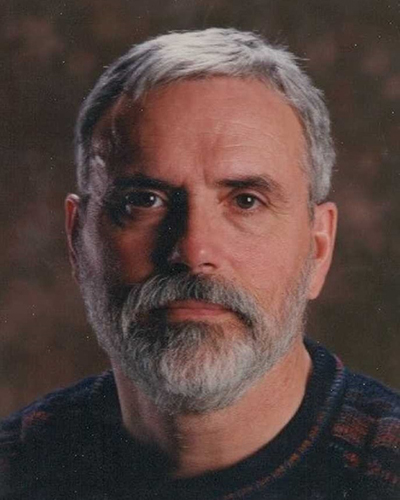Co-located with MODELS 2022: ACM/IEEE 25th International Conference on Model Driven Engineering Languages and Systems (MODELS). Montreal, Canada, 23-28 October, 2022
Overview
Software users are diverse, with differing personalities, technical proficiency, emotional reactions to software systems, socio-economic status, gender, age, culture, language, and preferences. Capturing and supporting human factors at requirements or design stages are essential for designing and modeling human-centric software systems that fit the end-users of the systems. Moreover, since modeling is an intrinsically human endeavor, many of the questions related to modeling can only be answered by empirical studies
The HuFaMo workshop series is a venue for early-stage empirical research involving human factors in modeling and design. Our goal is to improve the state of science and professionalism in empirical research in the MDE community.
Relevant topics to modeling of human factors include, but are not limited to:
- New theories and design principles about human factors modeling and design;
- New methods and techniques to incorporate human factors into requirements and design models;
- New tools to assist in modeling, requirements capturing, and design of human factors;
- Modeling human factors and supporting human-centric issues in model-driven software engineering;
- Modeling the human aspects of stakeholders and end-users of the software, such as age, gender, personality, emotions, disability and preferences;
- Industrial experience reports in modeling human factors in software development;
- Reviews and surveys of approaches in human factors modeling and design.
Relevant topics to human factors in modeling and design include, but are not limited to:
- Emotions of users in the face of modeling-related tools and activities;
- Stress, load and performance involving modeling activities and artifacts;
- Communicative and cognitive strategies and styles connected to design and modeling activities;
- Training and testing of modeling tools and related practices;
- Team and group behavior, including behavior across (social) media.
New this year: Best Theme Paper Award
This year’s MODELS conference will feature a Best Theme Paper Award spanning across all tracks. The special theme of this year’s conference is “Modeling for social good” #MDE4SG. The organization committee will select the nominated paper based on its fitness to the topic and the reviewer comments and scores.
Intended Audience
We address three audiences. First, we welcome researchers and practitioners active in the field of modeling and design of human factors, and provide them with a venue for disseminating their research results and keeping up to date with the latest developments in the field. Second, we propose the same type of venue for researchers and practitioners in the field of human factors in modeling and design. Third, we address researchers who want to start conducting empirical research. In the workshop, they will find a constructive environment where they can present their study design or theoretical framework under development.
How to Submit
Papers should be submitted in PDF format through EasyChair. We follow a double blind review process where authors will not be identified to reviewers and reviewers will not be identified to authors. Authors do not have to suppress references to their previous work, but should refer to it in the third person.
Authors must make it clear in the abstract if the paper contains an empirical study, a proposal or is a position paper, and which of the topics listed above are covered. If a paper represents work that is not yet fully validated, the paper title must have one of the phrases ’Proposal’, ’Preliminary results’, ’Work in progress’ or ’Position paper’. The following are some guidelines for particular types of content:
- EMPIRICAL STUDY of human factors in modeling and modeling of human factors, including replication studies and negative results. We strongly encourage authors to submit raw data and analysis scripts.
- STUDY DESIGNS investigating human factors in modeling and modeling of human factors. These contributions will be evaluated based on the quality of the study design alone. No actual study results are expected.
- THEORY PAPERS contributing to, or developing, a theory of some aspect of human factors relevant in modeling and also modeling languages and frameworks for incorporating human factors into the design of software systems. No empirical validation is required, but a thorough analysis of the existing work is expected.
- TOOL PAPERS that present any software developed to support empirical studies related to human factors in modeling and tools developed to model human factors. We intend here to promote tools that can speed up the execution of experiments. In particular, we seek libraries, frameworks or APIs that gather data about human actions and/or interactions between humans and electronic devices.
- POSITION PAPERS describe initial ideas or visions. Such papers may describe research positions or preliminary approaches on human factors in modeling and modeling of human factors
Submissions must adhere to the IEEE formatting instructions. Full papers must not exceed 10 pages, including references, appendices, and figures, while Position papers must not exceed 5 pages. Submissions that do not adhere to these limits or that violate the formatting guidelines will be desk-rejected without review.
Papers will be evaluated mainly from their practical take-away and the potential impact of the findings. Each submission will be reviewed in terms of the following criteria: 1) Innovation: advancing the state-of-practice; 2) Value: whether the problem is worth exploring; 3) Impact: the potential for disruption of current practice; 4) Soundness: the validity of the methodology, evaluations and the rationale; 5) Quality: the overall quality of the paper’s writing.
Important Dates
Paper submission deadline: Wed 20 Jul 2022 (AoE)Notification to authors: Fri 19 Aug 2022Camera-ready deadline: Fri 26 Aug 2022- MODELS Workshops: Sun 23 Oct to Tue 25 Oct (the exact date for HuFaMo is to be defined)
Dissemination
Accepted papers will be published in the MODELS conference companion proceedings published by IEEE.
Authors are encouraged to provide supplementary data of their respective research (e.g., raw data, transcripts, video footage of study sessions, R scripts), to be made permanently publicly available in the workshop’s repository, built on ZENODO. Although providing such extra material will not be mandatory, it is strongly encouraged, as a good practice in empirical studies.
Program
Monday, October 24th
| 8:30 - 10:00 | Opening, Keynote and Session 1 - Modeling of Human Factors | |
| 8:30 - 8:40 | Day openning. Welcome from the Chairs HuFamo 2022 organizers. |
|
| 8:40- 9:40 | Keynote: What’s Wrong with “Users”? Bran Selić, Malina Software Corp., Cana.
Chair: Silvia Abrahao |
|
| 9:40 - 10:00 | Session 1 - Modeling of Human Factors. Paper presentation |
|
| 10:00 - 10:30 | Coffee Break | |
| 10:30 - 11:30 | Session 2 - Human Factors in Modeling. Chair: Emmanuel Renaux |
|
| 10:30 - 10:50 |
Paper presentation Mining human factors general trends from +100k UML class diagrams. Maxime Savary-Leblanc, Xavier Le Pallec, Philippe Palanque, Martinie Célia, Arnaud Blouin, Frédéric Jouault, Mickael Clavreul and Raffaillac Thibault. |
|
| 10:50 - 11:10 |
Paper presentation Go with the Flow: Software Engineers and Distractions. Sabine Janssens and Vadim Zaytsev |
|
| 11:10 - 11:30 |
Paper presentation Preliminary Results of Measuring Flow Experience in a Software Modeling tool: UmpleOnline. Reyhaneh Kalantari and Timothy Lethbridge |
|
| 11:30 - 12:00 | Panel Discussion on Challenges of Human Factors in Modeling/Modeling of Human Factors + Open Mic Session.
Chair: Timothy Lethbridge and Silvia Abrahao |
|
| 11:30 - 11:55 |
Do you want to talk about something related to human factors that you’re working on? Tool, experiment, initiative… |
|
| 11:55 - 12:00 | Wrap Up |
Organization
Steering Committee
- Silvia Abrahão, Universitat Politècnica de València (Spain)
- Miguel Goulão, Universidade Nova de Lisboa (Portugal)
- John Grundy, HumaniSE Lab, Monash University (Australia)
- Rodi Jolak, Volvo Cars Corporation (Sweden)
- Hourieh Khalajzadeh, HumaniSE Lab, Monash University (Australia)
- Xavier Le Pallec, CRIStAL Laboratory, University of Lille (France)
- Emmanuel Renaux, Institut Mines-Telecom, Lille-Douai (France)
- Bran Selic, HumaniSE Lab, Monash University (Australia)
Organization Committee
Workshop Co-Chairs
 |
Silvia is an Associate Professor (accredited to Full Professor) at the Universitat Politècnica de València in Spain. Her research interests focus on quality assurance in model-driven engineering, empirical assessment of modeling approaches and the integration of UX in software development. She has co-organized a number of workshops in the past, including the series of workshops on “Experiences and Empirical Studies in Software Modeling” and the three previous editions of HuFaMo at MODELS. |
|
 |
Timothy is a Professor at the University of Ottawa. His current research focuses on UX of software modeling languages and tools, and of Umple in particular. He has also published on human-centred aspects of enterprise architecture, knowledge management, and software engineering education. |
|
 |
Emmanuel Renaux Emmanuel is an associate professor of the Computer Science and Network of IMT Nord Europe and associated researcher at CRIStAL laboratory at the University of Lille. His research interests focus on software engineering processes and software modeling in practice and more particularly, he studies NOUML (not only) sketches within the software development process. |
|
 |
Bran Selic Bran is an Adjunct Professor at the Faculty of Information Technology at Monash University. He has published extensively on topics ranging from real-time systems, software architecture, operating systems, to model-based engineering technologies and standards. He has over four decades of industrial experience with the design and development complex software systems in the cyber-physical space. |
Web and Publicity Chair
 |
Daniel Gaspar Figueiredo Daniel is research staff at the Technological Institute of Informatics (ITI) at the Universitat Politècnica de València and PhD Candidate at the Department of Computer Science at the UPV, Spain. His research interests focus on adaptive user interfaces, model-driven engineering, machine learning and the use of Electroencephalography (EEG) to understand how humans react during software engineering tasks. |
Program Committee
- Ankica Barišić, Université Cote d'Azur, & INRIA Sophia Antipolis Méditerranée (France)
- Arnaud Blouin, INSA Rennes (France)
- Michel Chaudron, Eindhoven University of Technology (Netherlands)
- Sébastien Gérard, CEA LIST (France)
- Miguel Goulão, Universidade Nova de Lisboa (Portugal)
- Jennfer Horkoff, Chalmers and the University of Gothenburg (Sweden)
- Emilio Insfran, Universitat Politècnica de València (Spain)
- Rodi Jolak, Volvo Cars Corporation (Sweden)
- Hourieh Khalajzadeh, HumaniSE Lab, Monash University (Australia)
- Grischa Liebel, Reykjavik University (Iceland)
- Mahdi Manesh, Porsche Digital GmbH (Germany)
- Marjan Mernik, University of Maribor (Slovenia)
- Philippe Palanque, Université Toulouse III - Paul Sabatier(France)
- Maxime Savary-Leblanc, CRIStAL Laboratory, University of Lille (France)
- Anj Simmons, Deakin University (Australia)
- Matthias Tichy, Ulm University (Germany)
- Juha-Pekka Tolvanen, MetaCase (Finland)
- Jean Vanderdonckt, Universite catholique de Louvain (Belgium)
- André van der Hoek, University of California, Irvine (USA)
- Uwe Zdun, University of Vienna (Austria)